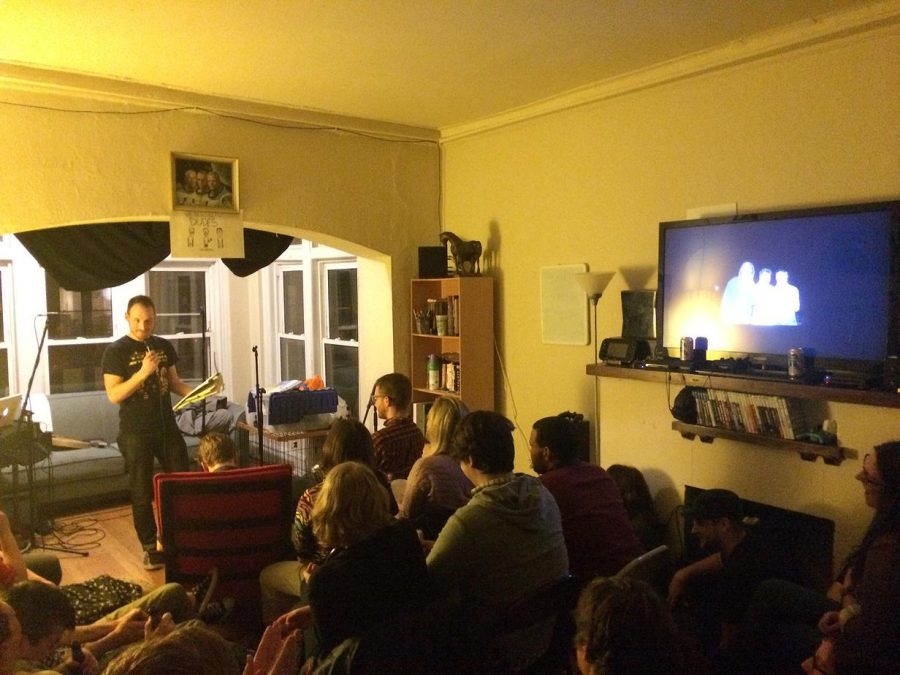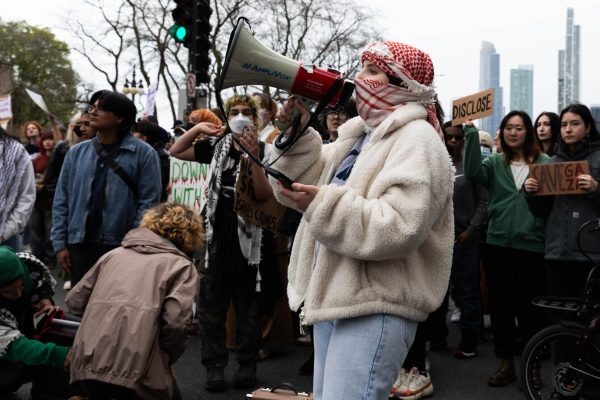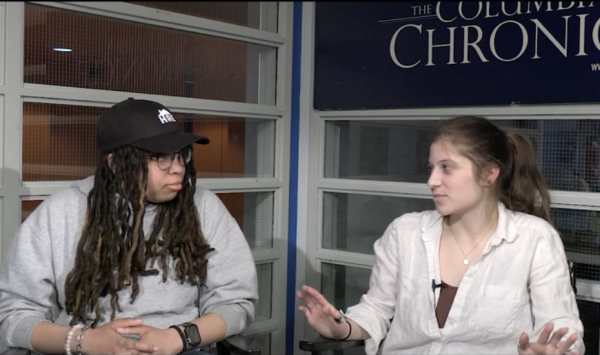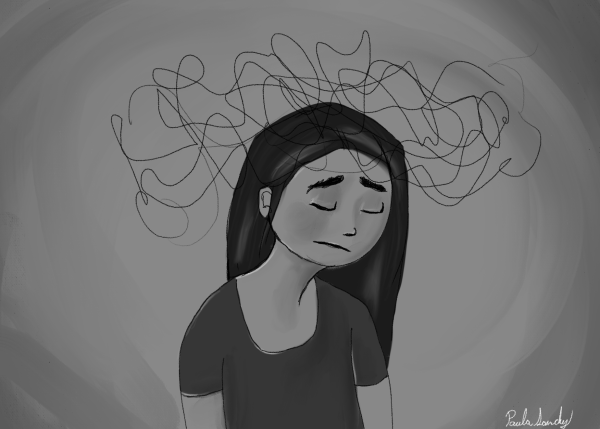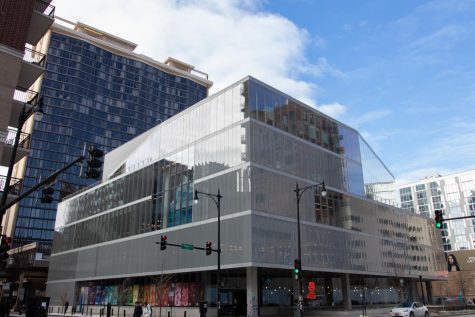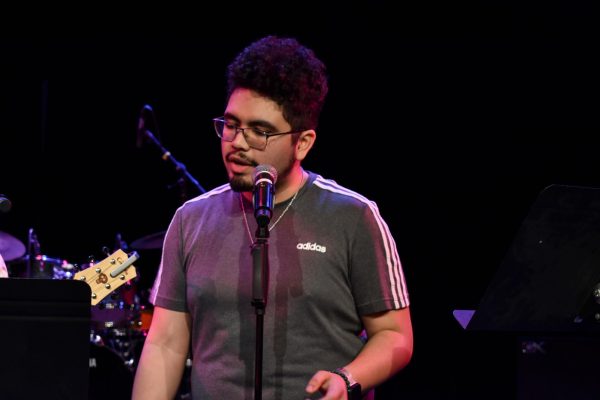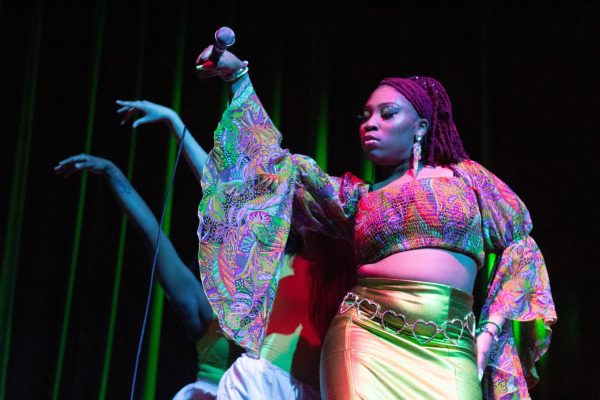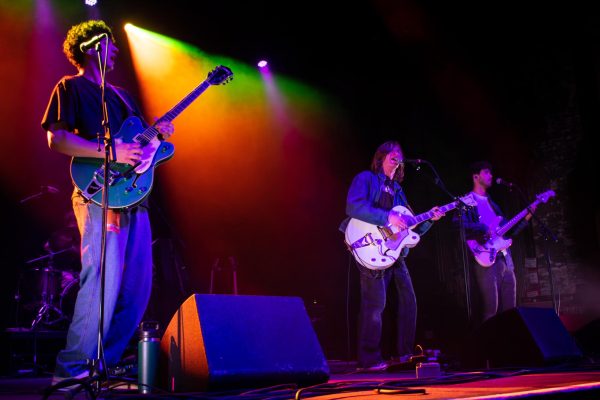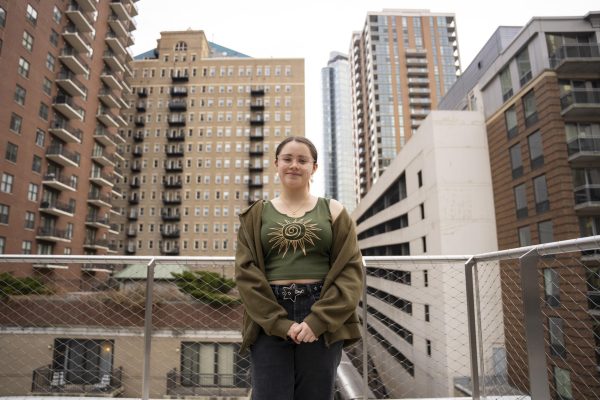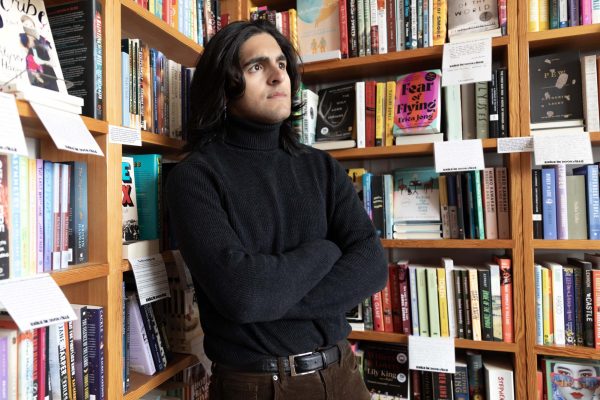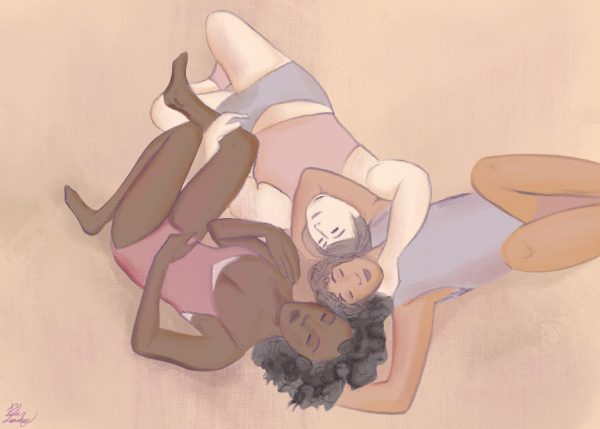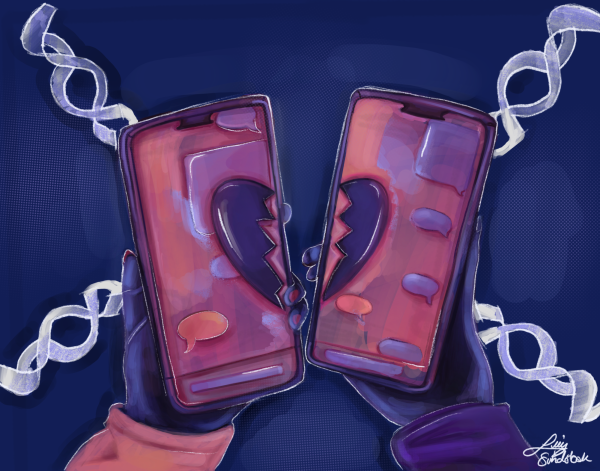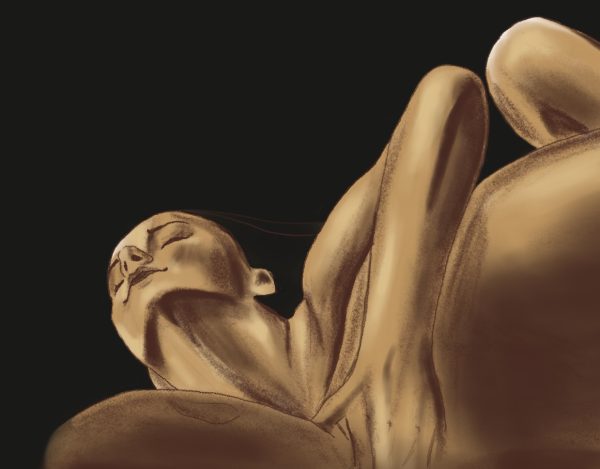Live comedy show transformed into podcast
A comedian shares his most shameful stories in front of a crowd of friends at a “We Still Like You” live show, hosted in apartments throughout Chicago and the U.S.
May 4, 2015
In the small backyard of an apartment building in Chicago’s Logan Square neighborhood during a hot summer night in August, comedians and other volunteers took turns standing on a makeshift stage, telling embarrassing tales of their most shameful moments to a forgiving, slightly intoxicated crowd.
Spectators surrounded the storytellers, listening from lawn chairs in the backyard and even hanging out the windows of nearby apartments to catch a glimpse of the show. After each person finished bravely sharing their embarrassing secrets, the crowd held up their beers in a welcoming toast, exclaiming, “We still like you!”
The gathering was recorded and streamed as a live show, which Jesse Betend, a junior radio major, later decided to produce as a regular podcast with hosts Tyler Snodgrass and Dan Sheehan, two of the creators of the live show.
“We Still Like You” started in February 2014 when local comedians Snodgrass, Sheehan and Danii Gallegos decided they wanted to create a stand-up comedy show that captures the energetic vibe typically found at a rock venue, Snodgrass said. After conceiving the idea of an embarrassing story open-mic night, they decided they wanted it to be as much a party as it was a comedy show, so they invited people to a welcoming space with free beer, Snodgrass said.
“It’s the most fun thing I do in Chicago because I get to be the host of a party, and I get to make my friends the life of the party,” Snodgrass said. “We create a really good energy because everybody is confessing their deepest, darkest stuff…. We are all just piled scumbags and we don’t have a choice but to be OK with it.”
Betend started attending every show with his recorder and told the hosts he wanted to be a part of this.
“We had heard some of the work [Betend] had done, and we thought he was so good at it,” Snodgrass said. “We couldn’t resist the opportunity to try to reach a wider audience and revisit someone’s story. If the podcast didn’t exist, then these stories would be told once and then they would never exist again.”
Betend created the official podcast after nine months of recording 75 stories that produced more than nine and half hours of audio.
“I want to tell stories, so I wanted to find a way to start doing that right away,” Betend said. “I just happened to walk into a group of really hilarious, super-dedicated people, and this has worked out wonderfully. I couldn’t have asked for a better group to work with.”
Four episodes have been published, as of press time, containing stories relating to plagiarism, death, pranks and “dudes.” The first episode, “We Still Like Plagiarism,” premiered at the end of March and has more than 160 downloads. Episodes are released bi-weekly and usually garner about 100 downloads each.
“I don’t want to just make things that fit into what [people] already heard,” Betend said. “I like the idea of making something that makes [the audience] a little uncomfortable, and the show does that while also being funny and good-hearted.”
Betend is also the president of the Audio Storytelling club, a student organization that produces various genres of podcasts, and has worked with Taylor Jarrad, a junior radio major, and Tom Okkema, a junior radio major, to raise awareness of the podcast. The club will perform a live show of “We Still Like You” at Manifest on May 15. Betend said he will record the stories and then edit them into a future podcast.
“I just love hearing those stories,” Snodgrass said. “My favorite ones are the stories that make the storyteller cringe even as they are telling it.”
“We Still Like You” has been performed live in apartments across the city, the U.S. and at comedy festivals such as the Green Gravel comedy festival in Iowa City. Snodgrass said its beyond just a show for him anymore. It is a singular event with a life of its own.
“I hope [the live show and the podcast] makes [the audience] feel like they are not alone with whatever ship they are harboring,” Sheehan said. “I think sharing and getting in front of people is freeing in a lot of ways, and I hope other people can see that and maybe let their own personal shame have less power over them.”


